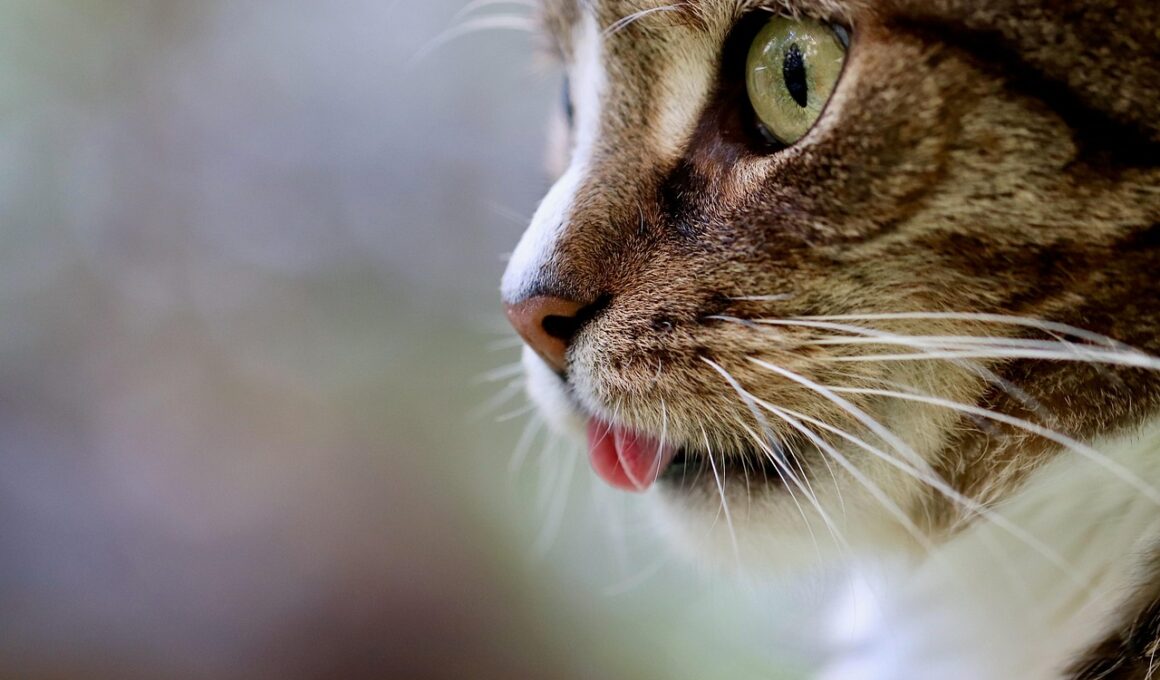Feline Vaccination Regulations and Laws Every Adult Cat Owner Should Know
Vaccinating your cat is not just a responsible action; it is often a legal requirement in numerous regions. Laws regarding cat vaccinations ensure public safety by decreasing the spread of various diseases such as rabies. Adult cats should be vaccinated appropriately according to the vaccination schedule recommended by veterinarians. Distemper, calicivirus, and feline herpesvirus are common vaccines essential for an adult cat’s health. Rabies vaccination is often mandated by law, and non-compliance can be met with fines or other consequences. To understand the particular regulations in your area, it’s crucial to consult with local health departments or veterinary offices. These regulations often evolve, so staying informed is vital to avoid legal issues. In addition to legal aspects, it is important to prioritize your cat’s wellbeing. Establishing a good relationship with your veterinarian will help you stay on top of vaccination schedules and recommendations. Be proactive about understanding the risks associated with non-vaccination, as this can significantly impact not only your cat’s health but also the health of your community.
Vaccination schedules for adult cats typically begin once they have completed their kitten vaccination series. While kittens receive their initial vaccines at two, three, and four months of age, adult cats entering a new home may need to be updated on their vaccinations if they do not have documented proof. After the initial course, vaccines generally are administered every one to three years, depending on the specific vaccine. To maintain a valid vaccination record, ensure that your veterinarian documents the dates on which vaccinations were administered. This record is vital when traveling, boarding your cat, or enrolling in any programs that require proof of vaccinations. Several vaccines are deemed core vaccines, including the rabies vaccine. Non-core vaccines cater to specific lifestyles and risk factors. For example, if your cat spends time outdoors, feline leukemia might be recommended. Conversely, indoor cats may have different needs. When discussing your adult cat’s vaccination plan with your veterinarian, consider your cat’s age, health status, lifestyle, and any regional disease risks that might inform your vaccination decisions.
Health Risks of Non-Vaccination
Failing to vaccinate your cat can expose them to serious health risks. Feline panleukopenia, commonly known as cat distemper, is one such disease. It is highly contagious and often fatal, especially in unvaccinated cats. Additionally, diseases like feline leukemia and feline immunodeficiency virus can lead to severe health problems, including cancer. Vaccination not only protects individual cats but also contributes to overall herd immunity, reducing the risk of outbreaks within communities. Unvaccinated cats can serve as reservoirs of disease, potentially infecting other pets and wildlife. Furthermore, some regions have specific laws concerning non-vaccinated cats, particularly around rabies. Ignoring these regulations can lead to harsh penalties. Regular veterinary check-ups and booster shots are keys to preventing disease in your pet. Education on common feline diseases is essential for responsible pet ownership. One should understand the symptoms of illnesses your cat may be vulnerable to and seek veterinary assistance immediately if they notice any concerning signs. By prioritizing vaccinations, you are investing in your cat’s long-term health and wellbeing.
It’s essential to verify the credentials of any veterinarian you consider for cat vaccinations. Licensed veterinarians are not just crucial for your cat’s health but are also knowledgeable about the local regulations surrounding vaccinations. Choosing a reputable vet can offer peace of mind. They can also guide you through the intricacies of the vaccination process and help you compile a vaccination schedule unique for your cat’s needs. Many veterinary practices offer client education materials on vaccinations, which can further assist you in making informed decisions. Additionally, the American Association of Feline Practitioners provides valuable resources and guidelines concerning feline vaccinations. Joining local forums for cat owners can also yield personal experiences and advice. Knowing your rights and responsibilities as a pet owner empowers you. If any contentious issues arise with vaccination practices, don’t hesitate to ask questions. Establish open communication with your veterinarian and insist on transparency regarding your cat’s health information. Maintaining a proactive attitude regarding vaccinations is essential for every adult cat owner committed to responsible pet ownership.
Vaccination and Travel Considerations
Travel plans that include a pet require that vaccination records be in order. Many boarding facilities, groomers, and pet sitters will require proof of vaccination. Traveling with your cat may also involve visiting different regions with unique vaccination requirements. Ensure you check the laws regarding pet vaccinations for the area you plan to visit. Rabies vaccination, in particular, is often strictly enforced, and proof must usually be presented to border officials. It’s also wise to prepare for potential health risks tied to travel. Some vaccinations can act as preventive measures against diseases prevalent in specific locales. Schedule a pre-travel veterinary check-up to discuss your plans and get recommendations on necessary vaccinations or boosters. The last thing you want is to discover your cat’s vaccination status is inadequate when it’s time to board or travel. Preparation can make the travel experience smooth and enjoyable for both you and your cat, ensuring that your feline friend remains healthy and safe. Understanding travel-related regulations and adhering to vaccination schedules allows for seamless adventures with your furry companion.
While vaccines are a critical component of pet healthcare, it’s equally essential to consider wellness exams. Regular veterinary visits allow for a comprehensive assessment of your cat’s overall health and can identify issues that vaccinations alone cannot address. These examinations can help detect underlying conditions early, ensuring that your cat receives appropriate care in a timely manner. Adult cats should ideally undergo a wellness exam at least once a year, during which the veterinarian will also check vaccination records and may schedule booster shots. These visits can also serve as a platform to discuss any behavioral or dietary concerns you might have. Additionally, the knowledge gained during these visits can enhance your understanding of feline health. Every cat is unique, and your veterinarian can tailor wellness plans suited specifically to her needs. By integrating regular check-ups with an up-to-date vaccination schedule, you reinforce a preventive care strategy that helps ensure your cat lives a long, healthy life.
Conclusion: The Importance of Feline Vaccination
In conclusion, understanding feline vaccination regulations and laws is fundamental to responsible cat ownership. Vaccinations protect not just individual cats from serious diseases but also foster healthier communities. Regularly updating vaccinations according to your veterinarian’s recommendations is necessary. Ignoring vaccinations can lead to dire consequences for your cat and possible legal penalties for you as an owner. Collaboration with your veterinarian will come in handy, especially when navigating the local regulations in your area. Feline community health is often intertwined with pet owner responsibilities. With the proper vaccination schedule in place and regular health checks, you can ensure a long, vigorous life for your beloved cat. Investing in your cat’s health is a lifelong commitment that offers tremendous returns in the form of companionship and joy. Always remain vigilant about your cat’s health needs, and stay informed about any regulatory changes in your area. A well-cared-for cat is a happy cat, and that is the ultimate goal for every responsible owner.





